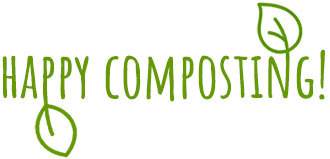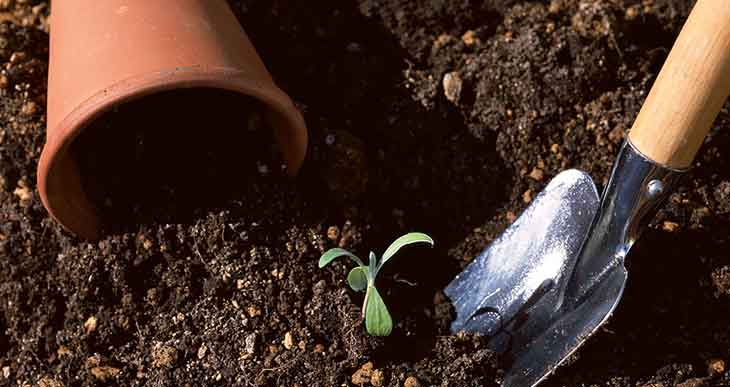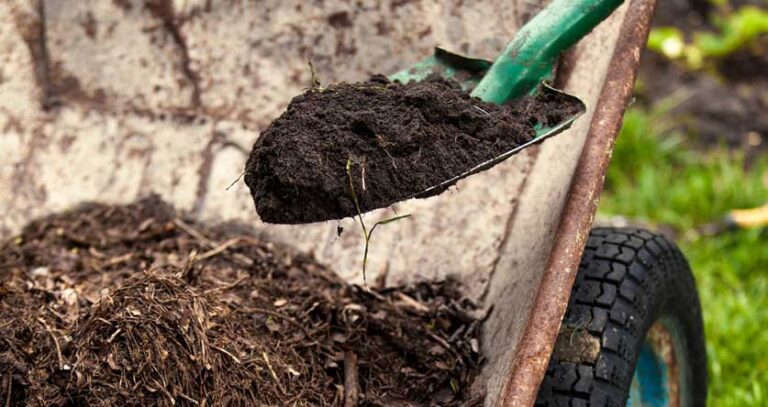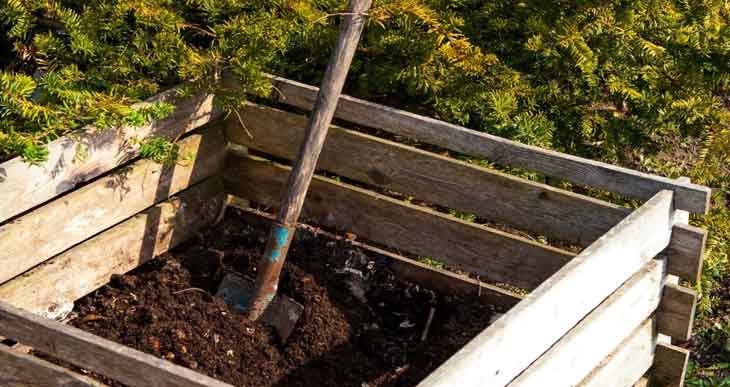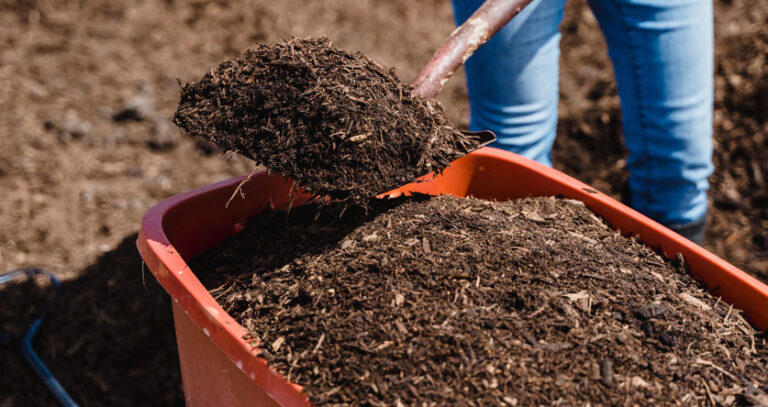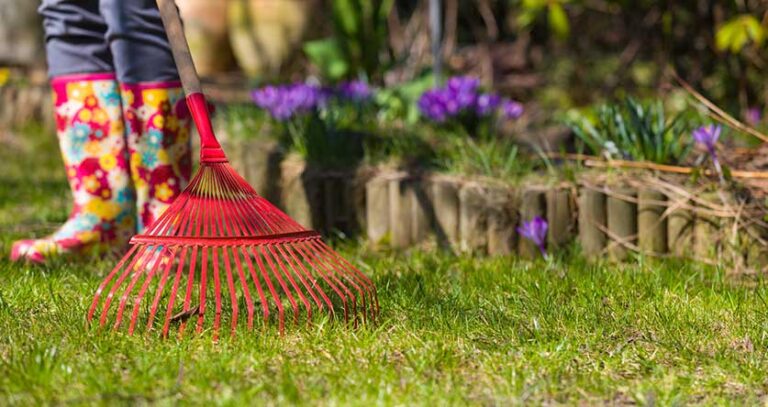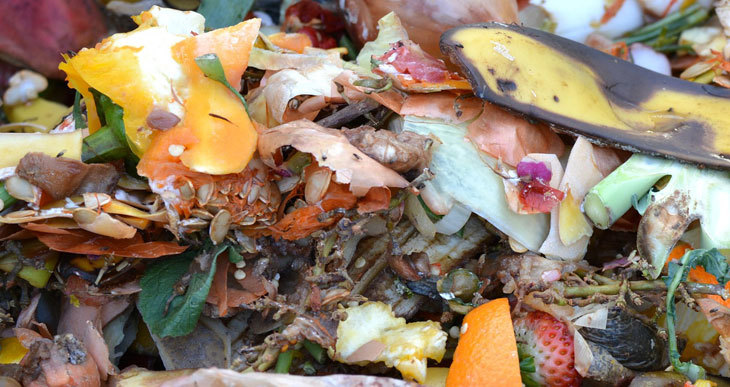Compost vs. Mulch (What Everybody Ought to Know)
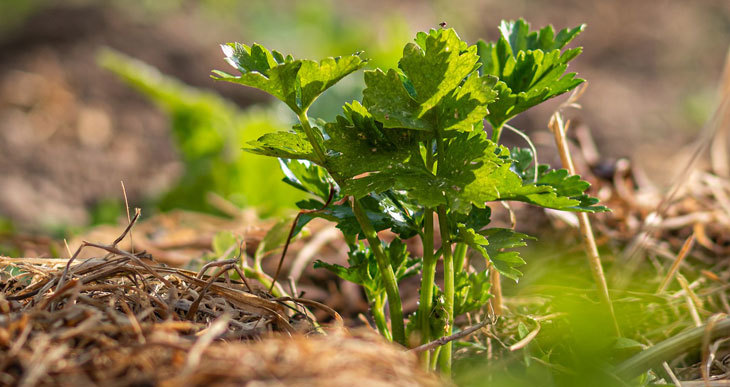
Many gardeners frequently ask, what’s the difference between compost and mulch?
This can be confusing because the two words are sometimes used interchangeably. Sometimes, even experienced gardeners mix them up.
This article will help you understand the differences between mulch and compost.
I’ll show you whether you can use compost as a mulch, which is better, and when and how you should use compost as opposed to mulch…
Let’s get started!
Difference Between Compost and Mulch
Mulch is anything that lays on top of the soil. Its purpose is to retain moisture in the ground, help prevent weeds, and look attractive. It includes things like rocks, bark, or tumbled glass. On the other hand, compost is usually dug into your soil to add nutrients and improve the structure and health of garden soil.
To better understand each of these components, first, let’s examine the different characteristics of compost and mulch.
What is mulch made of?
Mulch is made from inorganic or organic substances chopped into small pieces to make them easy to spread onto topsoil. The big difference is that organic mulch is made from natural materials which decompose over time. Whereas inorganic mulch includes non-perishable things, including plastics.
Here are some examples of popular types of mulch:
Inorganic mulches:
- A layer of rock or gravel of different sizes.
- Recycled tumbled glass.
- Shredded recycled rubber tires.
- Plastics sheet or fabrics
Organic mulches:
- Dead leaves
- Wood shavings
- Bark in various shapes and sizes.
- Coconut husks
What is Compost?
Compost is a mixture of organic ingredients transformed by the process of decomposition. When mature, it is rich in various nutrients and beneficial organisms and has properties that improve the quality of the soil. You mix it into soil as an amendment most of the time, but you can also use it as a mulch on top of your soil.
Some examples include:
- Homemade compost
- Commercial compost
- Vermicompost
- Coconut husks
The critical difference between compost vs. other mulch types is that you can dig compost into your soil as an amendment or scatter it on the surface as mulch. And because compost is organic, it continues to break down over time while adding beneficial nutrients.
Compare this to inorganic mulch made from plastic, which disintegrates over several years and can leak pollutants.
Can I Use Compost as a Mulch?
Compost can be used as a mulch. Compared to some other types of mulch, the main advantage is it adds some beneficial nutrients to your soil. It can also help stabilize pH levels which is helpful if you have poor or high pH soil.
Using compost as mulch imitates the same process that occurs naturally on a forest floor. As plants die, or when leaves fall during autumn, a layer of organic material builds up and decomposes on the ground. Then, in due course, the rain, worms, and other macroorganisms pull nutrients into the earth.
At the same time, this natural layer protects the underlying soil, shading it from the heat and preventing evaporation. And the lack of light prevents other unwanted plants like weeds from appearing.
The problem is that commercial compost can be pretty expensive. Also, when you have a big garden, you need to mulch a lot more. Home composting provides a better solution, and the end product comes from free materials! What more could you ask? Just add kitchen scraps and yard trimmings to a compost bin and turn now and again. You’ll have finished compost in 6 to 12 months.
Is Compost or Mulch Better?
Compost is better than mulch because it provides additional benefits for your soil, making it healthier and richer. What’s more, when you have planting beds that you’re going to be working in, it will be a lot easier to install and remove plants when using compost as mulch.
Mulch is vital for preventing weeds and holding moisture in the soil. Using compost instead of something like gravel will make your plants healthier in the long run. It will also help maintain a healthy balance of soil life and beneficial organisms.
Benefits of Using Compost as Mulch
To sum up, here are some of the benefits of using compost as mulch:
1. When it rains, your plants get watered with a kind of compost tea instead of just rainwater. When water filters through the compost, some of the nutrients and microorganisms from the compost get leached into the ground.
2. Compost improves the physical, biological, and chemical soil properties. For example, the neutral pH of compost helps stabilize soil pH, which improves nutrient availability.
3. Naturally prevents erosion by intercepting rainfall. The rough texture of compost helps slow down water runoff, and rainwater is more likely to infiltrate the ground.
4. Insulates the soil and prevents evaporation.
5. Homemade compost saves you money.
6. And mulch reduces the need to water your plants.
When To Use Compost vs. Mulch
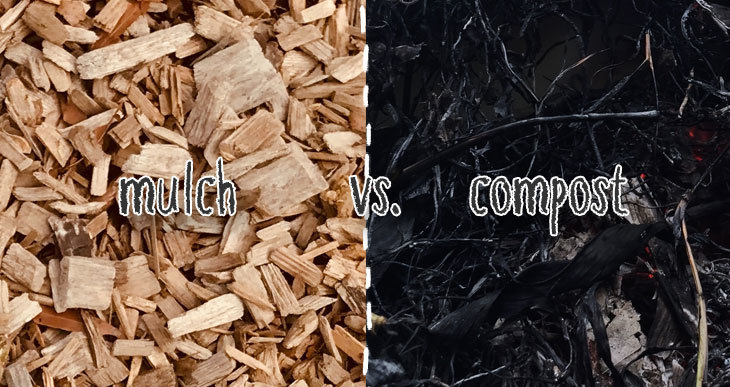
Compost as mulch should be your preference if your aim is to improve plant health and vitality. This is because it will have additional benefits for the underlying soil compared to other types of mulch. However, suppose your priority is to control excessive weed growth and trap moisture. In that case, an inorganic mulch might be a better option.
Mulch can also be expensive, so homemade compost could be a practical and cheaper alternative.
An easy way to generate large quantities of free mulch is to make a type of compost that gardeners call “leaf mold.” This is just rotting leaves. In the autumn, gather up all your leaves and put them into plastic bags. This anaerobic (without oxygen) type of composting breaks down the leaves fast, providing a useful material you can use as mulch.
The best time to apply mulch is autumn or spring. And if you’re using compost mulch, springtime is best, just before new growth begins.
How To Use Compost as Mulch
Mulching with compost is easy. Just apply a 2 ½ inch (5cm) layer around your plants and even out the surface with a rake. If you’re using homemade compost, be sure to screen it beforehand to remove any large non decomposed objects.
Before you mulch, you should groom and trim the spot that needs to be mulched so that you don’t get any trimmings on it.
If you have bulbs that haven’t budded, use a thinner layer of compost. A thick layer is suitable for suppressing weeds, but it might have the same effect on wanted plants!
Best Compost for Mulching
Finished and screened compost works best for mulching.
At first, compost has varying pH levels depending on the ingredients used. But over time, the pH of compost neutralizes to more beneficial levels for plants. Give your compost a little time to mature to avoid adding acid or alkaline materials to your soil when mulching.
And because compost includes hard material like branches, you’ll be better off screening the compost before using it as mulch. (Screens like this one on Amazon are like giant sieves for sifting compost and removing the largest particles).
Final thoughts
Choosing to mulch with compost offers certain advantages over other types of mulch.
However, be careful to assess your garden’s needs. For example, if weeds are a big problem, you might need a more radical solution.
Otherwise, compost makes excellent mulch for most situations. And if you make an effort to do some home composting – it’s also free!
